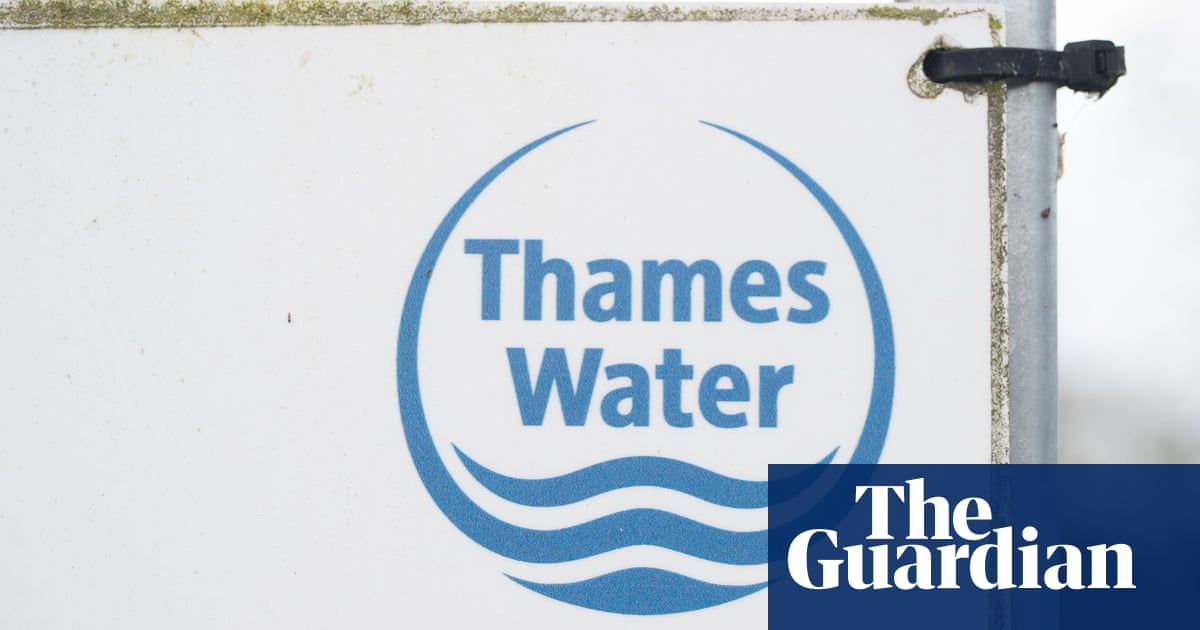
Thames Water is bypassing local democracy to attempt to push through a controversial water recycling project that campaigners say threatens to increase pollution in the river.
Steve Barclay, the secretary of state for environment, food and rural affairs, has agreed to an application by the water company to consider its Teddington water recycling scheme under national infrastructure rules. The decision means local authorities will be bypassed, and the secretary of state will make the decision whether to grant a development consent order.
The company applied for the project to be considered under national infrastructure rules as it faced a public backlash over the scheme, which is being promoted as a solution to tackling climate crisis-induced droughts.
The £250m project involves using effluent from sewage treatment works, putting it through a further layer of treatment and releasing the treated water into a river, in order to replace the same amount of water that is abstracted off for drinking water.
Thames Water’s scheme would involve abstracting 75m litres of water a day from the River Thames at Teddington, south-west London, in times of drought, and replacing it with treated sewage from the nearby Mogden sewage treatment works through a new tunnel.
Environmental campaigners have raised a number of concerns, such as damage to river systems from the increased water temperatures caused by pumping treated sewage into the river during low flow, a change in the salinity of the river, and the impact on fish and biodiversity.
There are concerns over the effect on river quality from so-called forever chemicals, per- and polyfluoroalkyl substances (PFAS), potentially contained in the treated effluent. Pollution from raw and treated sewage and agricultural runoff are significant causes of the dire state of rivers in England. A similar scheme was rejected by the Environment Agency in 2019 because of the anticipated unacceptable impact on the environment of releasing millions of litres of treated effluent into the river.
Save our Lands and River, a group campaigning against the project, said Thames Water held four community events last year promising to take into account local feelings and evidence regarding environmental damage to the river and a protected nature reserve that would be dug up to build the tunnel for the project.
But at the same time, the company was applying to the secretary of state under section 35 of the 2008 Planning Act to get the scheme appointed as a nationally significant infrastructure project and bypass local democracy, the campaigners said.
“Thames Water is proposing several schemes that would collectively provide up to 13% of the additional water needed by 2040,” the group said.
“Teddington is only one of these … therefore how can it be described as ‘nationally significant’? It begs the question: how much examination did Defra officials undertake of Thames Water’s application?”
Thames Water is at the centre of a criminal investigation by the Environment Agency into the suspected illegal dumping of raw sewage from treatment works.
The company leaks about 630m litres a day from its pipes, 60% of which are cast iron and have not been upgraded since the 19th century, according to the company’s latest business plan. The company has the oldest infrastructure assets of all the privatised water industry.
Water recycling is likely to provide just a small portion – about 7% – of the new water needed in England by 2050, which is equivalent to the demand of a population of 9 million people. Critics say reducing public demand for water is required, with a major public education campaign.
A Defra spokesperson said: “The Teddington direct river abstraction has been designated as a nationally significant infrastructure project, streamlining the development consent process. This designation does not indicate that the project is more or less likely to be granted development consent. Defra is currently reviewing Thames Water’s draft water resource management plan, which includes proposals for this project.”
A Thames Water spokesperson said: “The development consent order is an open and transparent process, managed at the national level, which will fully engage local customers, communities and councils, enabling them to have their say … With London’s population forecast to grow to 12 million by 2050 and the UK set to experience more extreme heat events, we believe the Teddington direct river abstraction project is of national significance, as it will help us meet future water demand during drought and ensure we keep the taps flowing for our customers.”
Thames Water bypassing local opposition in attempt to launch water recycling project - The Guardian
Read More
No comments:
Post a Comment